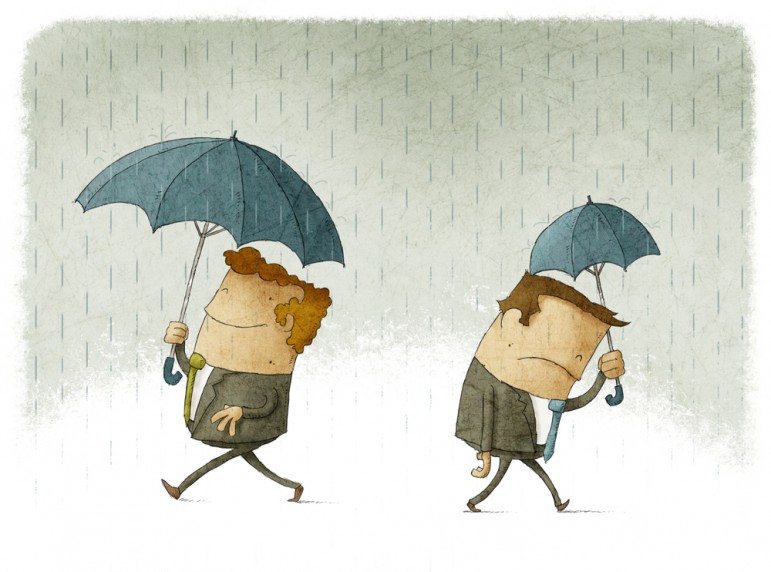The new study, published in the Journal of Behavior Therapy and Experimental Psychiatry had 39 participants wearing motion capture suits. Unbeknown to themselves, they were coaxed into walking in either a happy or depressed style by altering the way they walk in order to increase the level of a gauge on a biofeedback monitor that reflects their movement.
While unwittingly walking happily or depressedly, participants were asked if a series of 40 words described them or not. Then, after another 8 minutes of happy or depressed walking they were asked to recall as many of those 40 words as possible. Thus the participants had no idea the real aim was to test their memory while walking in a happy or depressed style, so as not to confound the results.
As outlined in the paper:
“Participants manipulated to walk in a more happy way recalled a higher proportion of positive self-relevant material… We found that memory for negative words did in fact change substantially with walking pattern. Our results show that biased memory towards self-referent negative material can be changed by manipulating the style of walking.”
Basically, the happier the participant walked, the more positively inclined their episodic memory was. When walking more depressed, the more negatively inclined their episodic memory was. In other words, negative biases in memory that are well-documented in depressed and anxious patients were achieved in healthy participants, simply by walking in a more depressed style.
Interestingly, despite walking style profoundly influencing positive or negative word recall, the participant’s mood itself did not change with walking style within the short 20 minute experiment. What this tells us is that the mechanisms behind walking style influencing the brain’s informational processing were not mediated by the emotional state experienced during walking, or the intensity of the walk (as all subjects walked at the same steady pace), but the walking style itself.
Can walking in a depressed style every day eventually make you feel depressed? Or on the flipside, can walking in a happy style every day eventually lead to greater happiness? Should we fake it to make it?
“Riskind interpreted this finding as that it may be useful to get in a mood-congruent posture to overcome failure experiences. If you have an incongruent position this is not possible. Therefore it may be useful to walk in a depressed walking style to overcome a depressed mood.”
Make a Happy gait:
So while research may ultimately find that generally improving your gait to be more happy at baseline can lead to having a generally more happy mood at baseline, faking it, through your body posture and movement style may not be fruitful when the situation calls for a little huff and puff.
However, when negative body postures have become second nature, as in depressed patients, as Professor Michalak puts it:
“It may be advisable to change such a movement pattern when it’s so habitual and decoupled from emotional processing, then it might be useful. However, when a congruent or incongruent movement pattern is or is not useful, is a complex issue that requires further research.”
Walking Style:
While Professor Michalak is building on the walking style study to include depressed patients, he is also the lead researcher in a 2014 study proving that even very minor positive changes to the seating posture of depressed patients can render their depressive memory bias obsolete.
Frowning:
Moreover, another study used Botox to specifically target frowning muscles of the brow, resulting in more than half (52 percent) of patients reporting significant and sustained improvements in mood, compared to only 15 percent for patients injected with salt water.
It seems that even the most minute and seemingly harmless postures, body and muscle movements can have a profound effect on our mood.
With the myriad of complexly intertwined causal factors contributing to depression it is difficult to say without further experimentation if a negative walking style could overtime lead to depression. What we can say with some certainty is that if you want to recall more positive memories from your daily wanderings, then walk tall, walk bouncy, walk happy, and walk sure .
Embody positivity and walk the happy walk so you can talk the happy talk when recalling your travels later!

